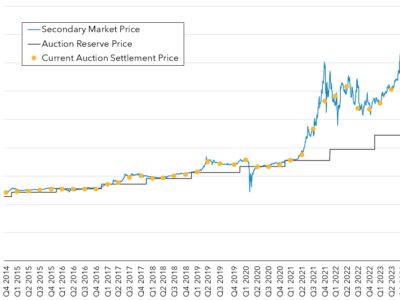New White Paper Released on Local Government Land Use Planning and Climate Change
 UC Berkeley and UCLA Schools of Law released a new white paper today called “Plan for the Future: How Local Governments Can Help Implement California’s New Land Use and Climate Change Legislation.” The paper looks at steps that policy-makers and local government leaders can take to improve land use planning in California to meet the increasing demand for “sustainable development,” typified by compact, walkable communities near transit, and the state’s greenhouse gas reduction goals. Local government planning is critical to implementing SB 375, the state’s 2008 land use and transportation law that seeks to reorient regional planning to meet greenhouse gas reduction goals.
UC Berkeley and UCLA Schools of Law released a new white paper today called “Plan for the Future: How Local Governments Can Help Implement California’s New Land Use and Climate Change Legislation.” The paper looks at steps that policy-makers and local government leaders can take to improve land use planning in California to meet the increasing demand for “sustainable development,” typified by compact, walkable communities near transit, and the state’s greenhouse gas reduction goals. Local government planning is critical to implementing SB 375, the state’s 2008 land use and transportation law that seeks to reorient regional planning to meet greenhouse gas reduction goals.
The transportation sector in California accounts for almost forty percent of the greenhouse gas emissions that cause climate change, making it the single largest source. These emissions result from the amount of miles that Californians drive their cars and light trucks, which are in turn directly related to the state’s auto-centric land use policies that discourage development that promotes walking, biking, and transit. While the public increasingly demands more of this sustainable development, local governments often lack the resources and will to implement it through land use planning.
The report finds that three key barriers prevent local governments from planning for sustainable development, including:
- a lack of political will by local government leaders;
- scarce fiscal resources for planning sustainable development, in part due to the real estate downturn, which has reduced revenue from developer fees that fund planning; and
- planning staff that lack access to needed technical assistance.
To overcome these barriers, the report recommends that local government leaders:
- develop a comprehensive public outreach campaign to achieve greater citizen involvement in the planning process;
- develop alternative means of financing planning efforts from regional, state, and federal sources such as tax increment financing in redevelopment areas and levying fees on auto-oriented development; and
- harness the expertise and best practices from other planning jurisdictions that have overcome the key barriers to sustainable development, including the use of “form-based” codes that streamline land use changes.
The paper’s recommendations are the result of a climate change workshop convened by UCLA and UC Berkeley law schools. Participants included industry leaders, policy-makers, academics, and business executives. It was the fifth in a series of workshops funded by Bank of America and a follow-up to a similarly-themed workshop held in March 2009 on this topic. That workshop produced the paper, “Removing the Roadblocks,” released in August 2009. Other white papers in the series can be downloaded here.








One Reply to “New White Paper Released on Local Government Land Use Planning and Climate Change”
Comments are closed.